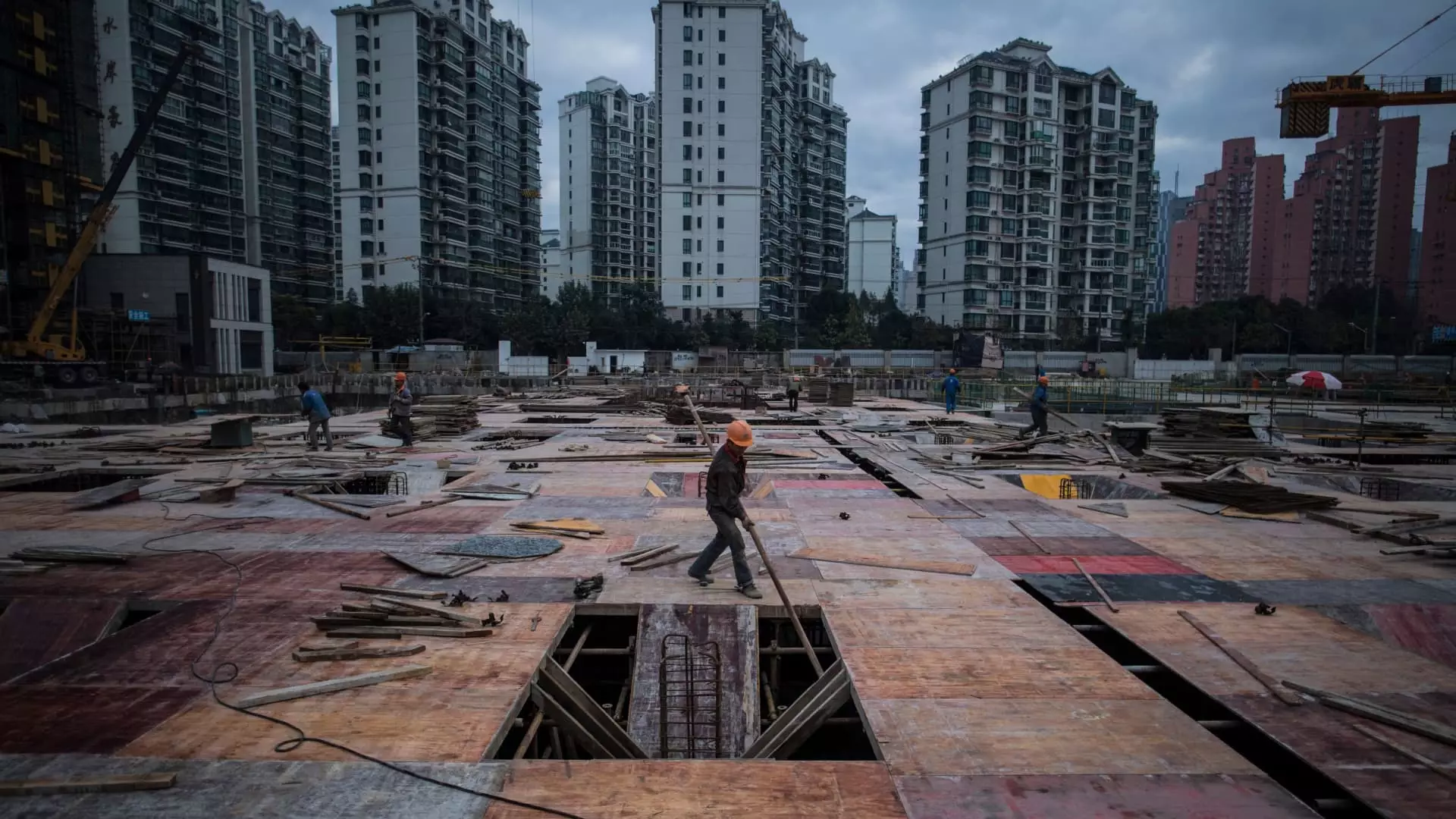The state of China’s real estate sector remains precarious, despite recent government interventions aimed at boosting market confidence. A recent report from the China Index Academy highlights these mixed signals, showcasing a temporary uptick in home sales even as the broader picture continues to reflect a struggling industry. The surge in sales during the Golden Week holiday was mostly isolated to Beijing, raising concerns about the efficacy of stimulus measures in revitalizing the sector. Analysts caution that while government initiatives may provide a momentary boost, they fall short of addressing the deeper issues plaguing the market.
During this year’s Golden Week holiday, significant fluctuations in property sales across major cities underscored the uneven recovery attempt within China’s real estate market. The report indicated that average daily home sales in Beijing soared by an impressive 81% compared to the same period last year. However, such optimism appears to be an anomaly. In stark contrast, cities like Shanghai, Guangzhou, and Shenzhen reported staggering declines in sales of 61%, 59%, and 57%, respectively. These statistics suggest a fracturing market where a recovery in one region does not equate to a national trend and reinforces the notion that the sector is still reeling from the impacts of previous downturns.
The long-term trajectory of home sales remains troubling. Historical data reveals a consistent decline in sales during the Golden Week holiday since 2021. The current year’s sales, averaging 107,000 square meters, reflect a substantial reduction compared to figures from previous years—177,000 square meters in 2021, followed by lesser amounts in subsequent periods. Such decline indicates that the ongoing crisis transcends seasonal fluctuations and reflects fundamental weaknesses within the property market. The downward trend poses challenges not only for investors but also for prospective homeowners and the economy as a whole.
While recent stimulus actions—such as lowering mortgage rates and adjusting down-payment ratios—have spurred limited increases in consumer sentiment, the consensus among experts points to insufficient measures. William Wu from Daiwa Capital Markets remarked that market confidence remains fragile, asserting that without more robust policy efforts, the recovery will be short-lived. This sentiment was echoed by Shen Meng of Chanson & Co., who emphasized the importance of long-term sales trends over isolated increases. Although reports suggest sales may improve further into October, it remains unclear whether such increases can lead to sustainable recovery.
The crisis within China’s real estate sector is compounded by a multitude of challenges, including a substantial stock of unsold properties, substantial debt burdens among developers, and an expanded number of unfinished projects. Analysts like Kenneth Ho from Goldman Sachs have noted the critical need for policies specifically targeting high inventory levels. Despite some efforts at the local level to stimulate demand, a comprehensive strategy that addresses the underlying problem remains elusive. The delicate balance between encouraging homeownership while stabilizing developers will need nuanced solutions to revitalize the industry.
As China’s property sector grapples with declining sales and a moribund market landscape, the recent stimulus measures seem inadequate in addressing the complexities of this crisis. While certain cities have seen positive trends, these are overshadowed by overarching challenges that threaten the long-term stability of the market. With increasing defaults among property developers and plummeting home prices, it is evident that government efforts must evolve beyond temporary fixes if they are to facilitate a meaningful resurgence. The path ahead is undoubtedly beset with hurdles, but targeted interventions coupled with sustained consumer confidence may offer a glimmer of hope in restoring vitality to China’s ailing real estate sector.


Leave a Reply